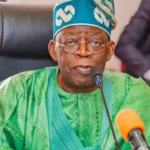
Minister of Finance, Hajia Zainab Ahmed, on Thursday told members of the National Economic Council (NEC), comprising governors of the 36 states of the federation, and Governor of the Central Bank of Nigeria, chaired by Vice President Yemi Osinbajo, that the balance in the Excess Crude Account (ECA) as at May 20, 2019, stood at $182.772m.
The amount represents a further depletion of the account from $631m just before last Christmas by 71% and by 92.11% from the $2.319bn balance in the ECA as reported by the Minister at the end of the Federation Accounts Allocation Committee (FAAC) on November 25, 2018.
Mrs. Ahmed also put the current balance in the Stabilization Account as at May 20, 2019, at N21.889bn, just as she told council at the valedictory meeting, according to the update on the meeting distributed by ‘Laolu Akande, Senior Special Assistant to the President on Media & Publicity, Office of the Vice President.
She added that the current balance in the Natural Resources Development Fund stood at N72.87bn.
Also at the meeting, the Senior Technical Assistant to the President, Office of the Vice President, listed highlights on the activities policies of the NEC to include that agriculture must be all-year round. This was in through initiatives such as national self-sufficiency in rice production, re-positioning of the Bank of Agriculture to enhance its capacity to finance the sector while creating an appropriate framework to intervene in the financing of the sector.
The Council also presented a legacy document highlighting its activities and resolutions between 2015 and 2019, which Prof. Osinbajo noted was important, not just “because it chronicles sector debates and resolutions but because it ensures that the next NEC is given a chance to implement or complete implementation.”
Osinbajo thanked members of NEC for their solid support and cooperation over the past four years, and their commitment to the socio-economic development of Nigeria regardless of party or geopolitical zone.
He further urged Nigeria’s political elite and leaders to do more to advance the country’s unity and its future prosperity.
For him, “the privilege of executive leadership at this level is one that only a few can have. Thirty-six governors and deputies; one President and one Vice President; 74 men and women of a nation of 200 million people. On this elite group rests the destiny and future of all our people.
“In the next few years, our population will double with the attendant challenges of jobs, education, healthcare, hard infrastructure and security. Every nation that has moved its people from misery to prosperity has depended heavily on its political elite; you and I. Our people have nowhere else to look or to go. It is at our collective table that the buck stops.
“Because you have led your States for these many years, no one can advise us on the importance of unity or the importance of tempering our utterances with wisdom, moderation, and concern for those who are the usual victims of fratricidal or religious conflict. The ordinary Nigerian has no problems with his brothers and sisters of different tribes or religions; they share the same issues to a decent existence, food on the table, good shelter, and security of life and livelihoods. Unfortunately, frequently our political elite sometimes out of advancing selfish political agendas or seeking relevance, recklessly stoke the fires of ethnicity and religious conflicts. We must, as leaders who have a duty to keep the peace and welfare of our States must not only rise above the temptation to take advantage of fault lines but openly condemn and restrain those who do.
“To those departing this Council let me say that your task is not done. Use your influence and reach to the advantage of the Nigerian people. You have seen and heard the enormity of our National problems your advice, counsel, and actions will always help. Do something in your States, or other States by way of advocacy and action on education and healthcare or jobs.”
Photo caption: Governor Abubakar Atiku Bagudu of Kebbi State in a chat with his Lagos State counterpart, Akinwunmi Ambode. Others are Alhaji Abdulfatah Ahmed of Kwara State (middle) and Alhaji Aminu Bello Masari of Katsina (right) during the NEC valedictory meeting on Thursday in Abuja.















